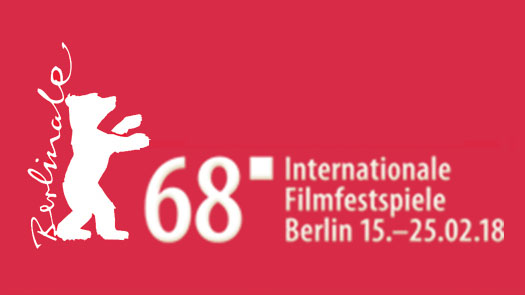The Looming Tower press conference with Dan Futterman, Jeff Daniels, Peter Sarsgaard and Tahir Rahim
Based on the best-selling book by Lawrence Wright, The Looming Tower focuses on the breakdown of communication between the FBI and the CIA in 1997 that led to the rise of Al Qaeda and 9/11. FBI agent John O’Neill (Jeff Daniels) and his partner, Ali Soufan (Tahir Rahim), try and build a case to prove the imminent threat Osama Bin Laden poses while CIA analyst, Martin Schmidt (Peter Sarsgaard), intervenes with all his might.
We sat down with show writer Dan Futterman and Jeff Daniels, Peter Sarsgaard and Tahir Rahim to discuss the story behind 9/11 and whether or not the intelligence community has learned the lessons of that painful disaster. The Amazon-produced series debuts on March 1st.
For those who haven’t read the book, it’s not just about 9/11 but stretches way back to the origins of Islamic extremism. How did you go about finding a focal point in the book and start building a story of your own?
Dan Futterman: John O’Neill and his protégé Ali Soufan were the natural people to centre around. Ali Soufan joined the FBI in 1997 and that’s where our story starts. A number of significant things happened around that time. A major piece of evidence was discovered by the CIA who hid it, a hard drive about Ahmad Salama Mabruk, and directly after that there’s bombings in east Africa. That felt like the right place to start to begin the rivalry, the key events and introducing this cute boy (pats Tahir Rahim on the shoulder).
Had you read the book and did that affect your decisions to take on these roles?
Tahir Rahim: I knew about it when I got offered the part and I was really surprised by all these true events after reading it. When I talked with Dan and Alex [Gibney, director], I wanted to know more about it. I read the first two episodes and was instantly hooked. I was surprised to see that there were Muslim American heroes and I wanted a big part of it.
Peter Sarsgaard: I read the book when it first came out and was really impressed by it. I really felt like, by 2008, we were ready to hear this story. I think a lot of people bought the book but very few actually read it. I met with Alex and Dan and we talked about it. It took me a while to coming around and understanding how to play this guy and understanding that world. I think the fundamental job of being a CIA analysts is storytelling. You’re putting together a narrative of scanned information to try and predict the future and if you look at it that way it becomes very interesting as an actor.
Who was John O’Neill? How did you approach this complicated figure?
Jeff Daniels: He is complex, which was one of the great things about working with Amazon and Hulu. They encourage writers to chase complexity, and for actors to get to play that is a great challenge but also a great opportunity. I looked at O’Neill and thought “I don’t know how to do this. I think I’d like to figure out how and risk failure”. That’s what keeps us going, it’s the challenge of it.
He was a mess, personally. Professionally he was brilliant and he would go to the mat for the women and men of the FBI. But also the hunch, backed by data, that Bin Laden was someone we needed to pay attention to was an alluring facet of his story. He seemed to be screaming in the wind. He didn’t have a political bone in his body and yet would go down into the centre of politics and get resistance from Peter’s character. The White House didn’t want to hear about it. So he started turning over tables and cleaning people’s desks. The way he went about it didn’t work but what he was saying was, in the end, right.
Tahir, what was your thinking going into playing this significant Arab-American character. How did you approach him and what were your goals in representing him?
TR:: Thanks to his knowledge on Arab culture he took the threat of Al Qaeda seriously. That’s the reason why John O’Neill hired him. He is complex in the way he is in between two cultures. People kept reminding him that he could be a traitor working for the other side, that “he’s not from here”. In this case it’s a bit complicated. I think what motivates the character is his values: freedom and respect for people.
I don’t think he can bear that these people are hijacking his religion. Obviously everything was down to the beautiful material that Dan and Larry [Wright, author] wrote but I needed to meet him just to know more about him. There’s two ways to portray someone that exists: you can just imitate him but since he’s not well-known, famous, I was more interested in knowing him as a soul, as a man in his private life and the relationship he had with John O’Neill. That way I could let him talk through me.
How about you Peter? How did you get into Schmidt’s head?
PS: It’s interesting. I always felt like he was screaming in the wind too. Why does he do what he does? He wants to preserve his specific version of America. One of the things that’s different between me and this guy is, in his mind, an American life is more valuable than a Syrian life. So he’s really out to protect Americans. That said, the way he conducted that investigation, you could look back and blame the lack of information sharing, but ultimately what took our eye off the ball was not just the lack of cooperation between the FBI and CIA.
The American people were chasing other things: Monica Lewinsky and other distractions. I first moved to New York shortly after the first attack on the World Trade Centre in the garage and it never really became something that we fixated on until 9/11. Then, we did pay attention, with a vengeance. I think we all participated in this error. If we all claim responsibility then we can prevent it from happening again.
Did you have any trepidation going in to this that it would be misinterpreted? How worried were you going into a such a politically challenging subject?
DF: Rightly or wrongly, I tend not to worry. You dive in and hope you can swim. There are two things I wanted to make sure we accomplished. One was Tahir’s character, a real person – Ali Soufan. We wanted to show a Muslim-American, who immigrated from Lebanon when he was 15. He became a patriotic American, more than anybody I know. The real Ali Soufan says “My Country did this”. “My country will do that” and he’s talking about America not Lebanon. If he tried to come to America today he’d have a hard time, we’d reject him and be less safe as a result. We wanted to show that. This guy knows what Islam and patriotism is about.
The other thing we wanted to provoke were some answers: 9/11 families, friends of the victims have been asking questions for 17 years now and have gotten very few answers. So we tried to answer some of those questions and when we couldn’t, we tried to ask those questions again and again and louder than before. If they provoked some push back at least well get some answers.
JD: You can’t care about that. I think that gets in the way. What I did care about was getting on the same track as Dan and Alex. Then, post premiere ,it mattered to me what Ali Soufan thought and O’Neill’s partners thought. It was positive reaction, Ali Soufan gave me one of O’Neill’s FBI pins at the New York premiere and thanked me for it. I said, “Ok, that’s the only review I need”.
Did it change your perspective on that period of history?
JD: I didn’t know who John O’Neill was. I hadn’t read the book but I was really excited by the material and these two guys. I didn’t know Tahir but loved working with him. But Peter is a reason to do a project like this as is Michael Stuhlbarg. So I read the book afterwards and my immediate reaction was are you kidding me!? I have a feeling that 17 years removed, a lot of America is as unaware of John and the book as I was. That’s a great reason that this will be almost new information especially for those who think they know what 9/11 was about.
PS: I’ve always asked questions of my government. I grew up in a family of Southern Democrats who questioned the political landscape on a daily basis. My mother’s from Memphis and my dad from Missouri, I grew up in St Louis, so race in particular was always a topic in our house. When you live in a place like St Louis the conversation becomes active because it’s outside so it’s always been on my mind. When I got this project, one of the things that really excited me was Tahir’s part. How different his experience of this country is to my own.
He’s a bigger patriot than anyone I know and I think that’s frequently the case. People that have been in a place for a long time become inured to it’s values, they lose track of what is so fantastic about it. It’s a very important message over the world but specifically in the States. Those people first arriving are going to reinforce those core values and remind us all of how great the country is.
Tahir, what do you hope the impact of your portrayal of Ali Soufan will be on the audience?
I’m not sure what it will be. I hope it opens people up to a better understating of what Islam is and to define the difference between real Muslims and terrorists. I think about the next generation. It’s important to tell that period of history, to tell them what happened because it’s not just American history it’s the history of the world. If they go in and investigate and find out more, that is the first important step I wanted us to achieve. If people understand that we have to be united and have to live hand in hand I think we’ve done the right thing.
Have lessons been learned from 9/11? Do you think the situation between the CIA and the FBI has improved?
D.F: I’m not qualified to talk about the intelligence community but when I talk to Larry [Wright], he feels like certain lessons have been learned. There’s been restructuring and rearranging of priorities but I can’t say from my own perspective whether that’s true or not. I think that, as Tahir is talking about divisions within the intelligence community in the US, that today the house of representatives, the senate, the American public are incredibly divided along partisan lines. It feels like something’s got to give and I hope it’s not disastrous but it feels pretty bad living in America these days knowing the lack of communication between people.
What do you think the show can add to that discussion? What do you want to communicate to your audience?
JD: Ask questions. I’m curious to know whether the FBI and CIA are doing better, whether they did learn. You like to think, considering the circus in the white house, that the intelligence community are sharing and communicating better. I don’t know but you would hope they are.
PS: Larry talks about how Al Qaeda is larger now than it was before 9/11. Isis might be defeated but the threat of terrorism is as large as it ever has been. We do seem to be chasing our tails about all kinds of other issues. There’s daily distraction on the news and you know it’s not going to have anything to do with a serious threat to you personally, or about the possibility for a better, country world. “BREAKING NEWS, IT’S ALL OK. STUFF JUST GOT BETTER.” It’s just not what happens.
Thanks for your time, looking forward to the show!
Sean Gallen
The Looming Tower is released on Amazon Prime on 1st March 2018.
Read more reviews from our Berlin Film Festival 2018 coverage here.
For further information about the event visit the Berlin Film Festival website here.
Watch the trailer for The Looming Tower here:



























Facebook
Twitter
Instagram
YouTube
RSS